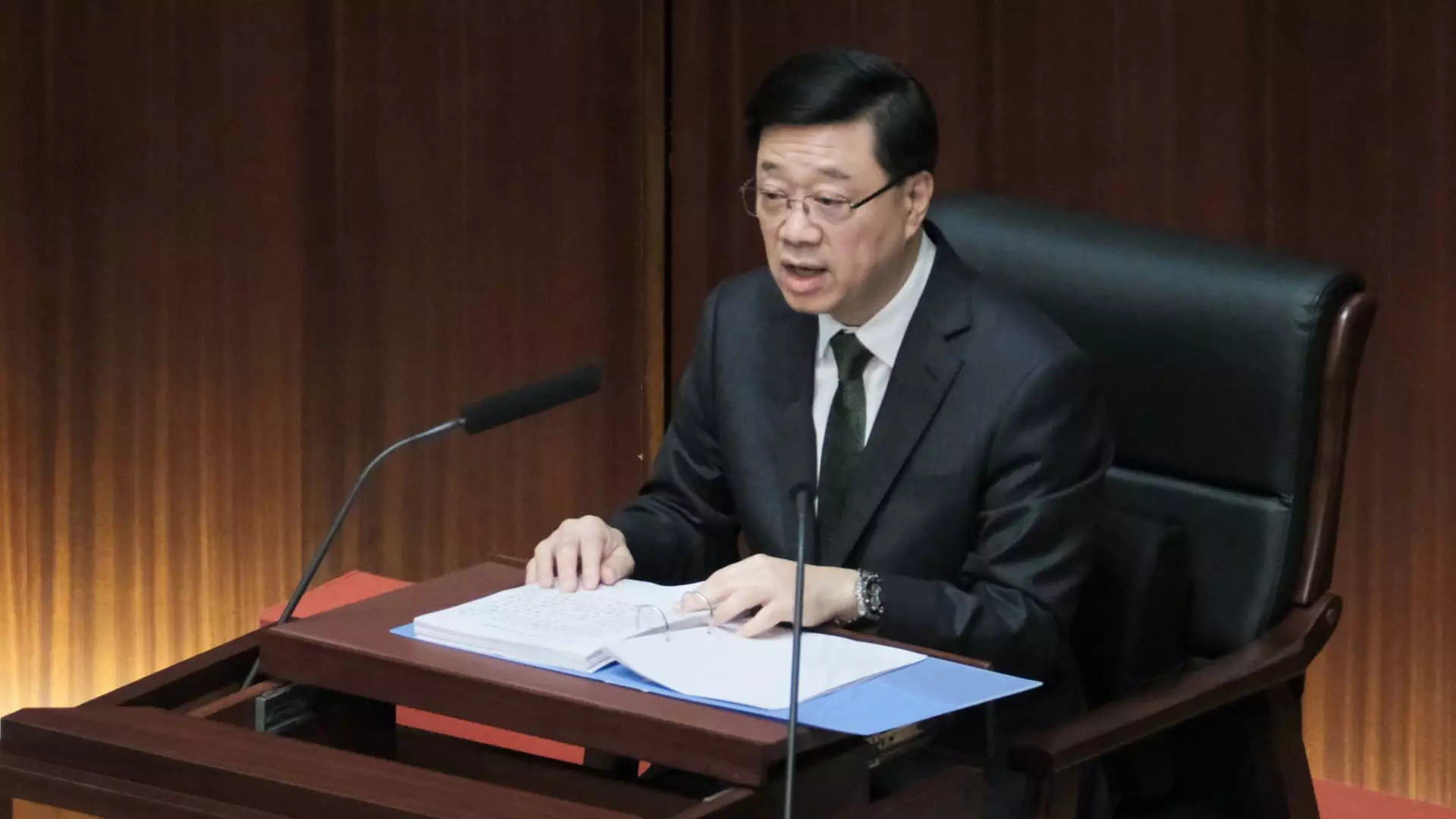Hong Kong, a city renowned for its stunning skyline and vibrant culture, is grappling with a significant housing affordability crisis that has persisted for years. John Lee, the city’s chief executive, acknowledged this pressing issue in his recent annual policy address, highlighting it as one of the core concerns facing residents. With the state of the housing market affecting the younger population disproportionately, Lee’s proposals aim to make affordable housing more accessible for those under 40 while addressing broader housing conditions in the city.
Among the spotlighted proposals in Lee’s address is the introduction of a mechanism intended to facilitate access to subsidized housing for younger residents. This initiative, motivated by the rising challenges young people face in securing affordable accommodation, seeks to allocate additional ballot numbers for applicants under 40 in the Home Ownership Scheme. Not only does this reform offer hope for many young people who have struggled to find their footing in a market notorious for its high prices, but it also reflects a broader recognition by the government of the unique pressures this demographic faces.
Moreover, Lee announced an increase in the quota for the “White Form Secondary Market Scheme,” which permits the sale and purchase of secondhand subsidized flats without incurring a land premium. The addition of 1,500 units dedicated to young applicants is a significant step, considering the current number of residents eligible for such flats is alarmingly low. Such measures may help alleviate the temptation some young professionals face to turn down promotions and salary increases exclusively to maintain their eligibility for public housing.
The housing landscape in Hong Kong has been characterized by a proliferation of “shoe-box size” subdivided flats, often viewed as substandard living accommodations linked to pressing health and safety concerns. Lee’s address also touched upon the conversion of these units into “Basic Housing Units,” which aims to elevate living standards by imposing necessary conditions like larger space requirements and better facilities. The introduction of a new regulatory system for renting subdivided flats reflects an understanding that simply increasing the number of units isn’t sufficient; improving the quality of available housing is equally vital.
Despite these new measures, the stark realities of living conditions for many remain evident. Over 100,000 subdivided flats currently house residents, with many of these spaces woefully inadequate. While new policies are designed to usher in positive changes, it remains to be seen how effectively they will be implemented and whether they will truly meet the needs of Hong Kong’s vulnerable inhabitants.
A resounding theme in Lee’s address was the promise to expedite the construction of new public housing units. The proposal to complete approximately 30,000 new units by the 2027-2028 period seeks to address the current public housing wait time, which stands at 5.5 years. By targeting a reduction to 4.5 years by 2026-2027, Lee is acknowledging persistent public outcry regarding lengthy waiting periods that leave many families in a state of uncertainty.
Such robust ambitions in housing policy mark a strategic pivot in Lee’s governance approach. Earlier policy frameworks during his tenure concentrated more on national security and pandemic recovery; however, this recent focus on livelihood enhancement indicates a shift towards addressing immediate socio-economic challenges facing the city.
While John Lee’s annual policy address presents a range of initiatives that could spur meaningful change in Hong Kong’s housing landscape, it remains to be seen whether these proposals will translate into tangible improvements in living conditions for residents. The ongoing housing affordability crisis calls for not only faster construction of units but also the thoughtful consideration of housing quality. As the government works to address these chronic issues, the effectiveness of proposed measures and their impact on the lives of young Hong Kongers will be crucial determinant factors in the city’s future well-being.

